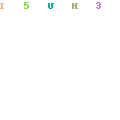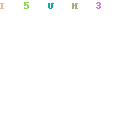KOLKATA: A seroprevalence survey by the Indian Council of Medical Research has revealed that 14.39% of Kolkata’s population have developed Covid-19 antibodies. The city is followed by South 24-Parganas at 2.5% and Alipurduar at 1% respectively. Three other districts where the survey was conducted on the basis of random samples – East Midnapore, Bankura and Jhargram — have antibody positivity rates of less than 1%.
Antibody is a protective protein produced by the immune system in response to the presence of a foreign substance, an antigen, in this case the new coronavirus, SARS-CoV-2.
A seroprevalence survey studies the presence of antibodies in a population on the basis of random and rapid tests like IgM and IGg that indicate the rate of transmission in the community and whether the community is developing herd immunity to a virus.
Experts say the survey findings indicate that while transmission is now wider in Kolkata, the city is far from developing herd immunity or antibodies that can fight the virus. “To develop antibodies, seroprevalence or positivity rate should cross 50%. Only then shall we have a large number of Covid positives with muted symptoms that will not require hospitalisation and recovery will be faster and more frequent. So, the figure for Kolkata remains worrisome,” said AMRI Hospitals medicine consultant Debashish Saha.
These figures, however, do not reflect the rate of transmission in the city since a patient is tested multiple times till he or she turns negative, pointed out medics. That apart, well-known private laboratories have centres outside Kolkata that receive samples from the districts.
Former director of Calcutta School of Tropical Medicine Amiya Hati said the ICMR finding is very significant as it shows Covid-19 cases are on the rise in Kolkata, which is a matter of concern. “The government will have to face a stiff challenge as the positive cases are likely to rise further. I am particularly worried about the asymptomatic population in Kolkata, the serosurvey results also point toward that,” he said.
“Like all other public health issues, this viral infection, too, needs a successful implementation of a prevention policy that includes an effective awareness programme that is lacking in Kolkata. Besides, the government and the civic authorities need to strictly enforce social distancing for a few more months to keep the virus at bay. The KMC should keep its focus continuously on slums because of the density of population and lack of utilities. Personally, I feel the government and the KMC needs to enhance testing facilities to know more about the lurking danger,” Hati added.
According to a health official who is part of KMC’s Covid response team, the civic authorities will now have to concentrate on sensitive zones where positive cases are rising steadily. “The serosurvey results show much more needs to be done in the worst-off containment areas to ensure that fewer people get infected. We also need to tighten social-distancing norms, particularly in markets and slums and conduct swab tests at a faster rate at high-rises, housing complexes and apartment buildings where the number of positive cases has picked up,” the official said.
Virologist Amitabha Nandy, however, felt the ICMR serosurvey sample size was too small for both Kolkata and the districts to arrive at a conclusion on either the rate of transmission or herd immunity. “We can merely assume that transmission is on the rise. While more than half the population needs to be infected for herd immunity to develop, we can’t be so sure about Covid. It’s still not known if herd immunity against Covid is at all possible,” Nandy added.
Source: https://timesofindia.indiatimes.com/city/kolkata/14-in-kol-now-have-covid-19-antibodies-icmr-sero-survey/articleshow/76668138.cms


